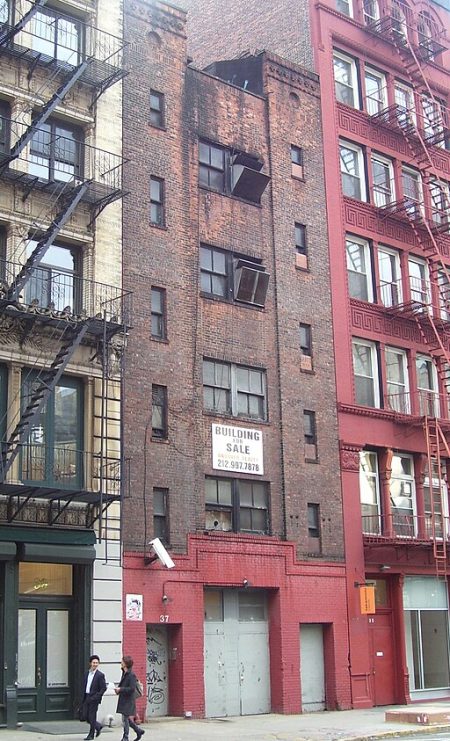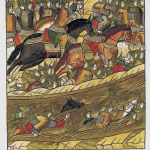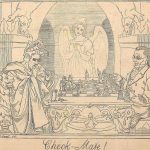
When I opened up Great Jones Street, the 1973 novel by then barely known Don DeLillo, my first thought was, “This is going to be dated.” Naturally I was wrong. Suffused with the gritty, absurdist ethos and aesthetics of punk rock combined with a noir-esque approach to dialogue and story development, DeLillo feels ahead of his time, not behind, and in a strange way, almost timeless. The novel is the story of a rock star named Bucky Wunderlick, who one day walks out of his life as an international phenom and goes to live in a grubby apartment on Great Jones Street1 in the East Village of New York City. The reasons for this dereliction of duty are vague at first, but it seems to have something to do with fame.
“Fame requires every kind of excess,” Wunderlick tells us in the opening sentence.
The book is written in the first person from the point of view of Bucky. He tells us about his famous life, so famous that when there is no news about him for more than a day or two, fans just make it up. These inventions are then reported by the media as “rumored to be.” As a musician, Wunderlick’s role is to alter the minds of his audience, to blast them into another dimension and fill their emptiness with the new thing, whatever it is. It is always necessary that there be a new thing to give the fans the fresh stimulation they crave. It becomes obvious after a while that the fans have no means to provide stimulation for themselves.
Wunderlick is in hiding, but not all that successfully. People continually pay him visits. His manager, the manager’s message boy, random druggies off the street, Opel the ex-girlfriend (one pictures a young Shelly Duvall). There’s the writer upstairs, the mythical drug expert, Dr. Pepper, and representatives from the Happy Valley Commune and drug cartel. A news team even stops in, but Bucky won’t talk to them, as he does with most of his visitors. He’s not an outgoing guy, which is why it’s actually a good thing that all these people come to call. Otherwise, the novel would consist of Wunderlick sitting silently in a chair, Wunderlick staring out the window, Wunderlick talking to himself. And even with all the visitors, there’s still a fair amount of Wunderlick talking to himself.
This too is ok — Wunderlick is a post-modern character (which means literally that he is “post-Now” if that means anything—he’s in the future, man). And as a man of the future, he is obsessed with nothing except the fervent desire to escape the sick emptiness of the modern world, a world so empty that it needs famous avatars like Wunderlick to give it life and meaning, something the fans cannot generate for themselves, something the fans will pay to get. As his manager Globke points out, it doesn’t matter what he does as long as he does something — something that can be commodified and sold.
“I believe in death-in-life,” said Hanes.
Everyone in DeLillo’s novel talks like a character in a Raymond Chandler novel, if they were, at the same time, part-time philosophers and marketing genii. Which, in a way, they are.
“The tour represents a survival all its own, Bucky, and I know you perceive that truth. They’re waiting out there… It’s America. The whole big thing. Popcorn and killer drugs. You can’t just sit here.” Says Globke.
Globke is Wunderlick’s manager. He and Hanes work for Transparanoia, Wunderlick’s rock star holding company. It exists solely to use up the cash generated by the rock star and his band, making Bucky the owner and chief exploitee. The corporation needs one thing above all else — cash flow. Why? So it can keep on doing whatever it’s doing, even if that mission is unknown even to its owner. Only Globke knows all. Never mind that modernity is nothing but darkness cloaked in glitz and banality. It sells, or it can sell, and that’s all that matters.
As types, DeLillo’s characters exist to sketch an outline and convey information that our hero and the reader need to know. Our hero is a philosopher. He thinks about things. Oddly enough, most of his many visitors are also philosophers — his ex-girlfriend, the Transparanoia lackey, the freelance writer upstairs. They can render advice, tell him how the world works, warn him of consequences.
Speaking of the world, it is not a pretty one, the world of Great Jones Street. The apartment is kept in the condition of a junkie’s flop, although our hero does no drugs. Nothing works except the telephone; there’s no coffee, no food, only a grim view out the window, a bubble chair, and a bed. That’s why it almost makes sense that he is chosen by the shadowy drug people who meander through this novel as the perfect person to leave their brick of experimental drugs with.
If we were comparing: the novel is a satire but not like Candide, a philosophical novel but not like Dostoevsky, a noir private detective novel without the detective. Our hero is uninterested in anything anyone says to him, and we’re unsure if we should be either, although we are.
Enveloping the novel like a cold fog, there’s a gritty sci-fi ambience reminiscent of Bladerunner/Philip K. Dick. But in the end, it’s really a twisted amalgamation of all these things, and also an excuse to talk about fame and privacy, pop culture and its effect on people, people and their desire to be dictated to by pop culture, creativity and language and their increasing irrelevance, in short, the death of the artist, who does not die but may as well have.
And that is far from all that one could say about Great Jones Street by Don DeLillo. Read it and it will haunt you in strange ways, like an unsettling dream about real life as played by characters from a Raymond Chandler novel on existential dope.
_+_
1 A street in No-Ho, Manhattan. The area of 3rd St. between Broadway and the Bowery. https://en.wikipedia.org/wiki/Great_Jones_Street
Photo credit: Beyond My Ken, CC BY-SA 4.0 <https://creativecommons.org/licenses/by-sa/4.0>, via Wikimedia Commons




